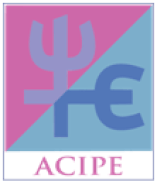
María Luisa Gómez Taibo
Department of Psychology. Institution: University of A Coruña (Spain).
Emergent and Conventional Literacy in Augmentative and Alternative Communication.
Complex communication needs (CCN) is the term coined in 2002 by the president of the International Society for Augmentative and Alternative Communication to refer to various conditions and resulting severe communication problems that make it difficult or impossible to use speech. People with NCC require augmentative and alternative communication (AAC) systems to satisfy all dimensions of communication.
The communicative possibilities offered by AAC assistive technology are greatly expanded when the code is alphabetic. With only 27 symbols the person with NCC will be able to communicate unlimitedly and independently. Writing opens doors to conventional writing functions, more comprehensible and self-initiated interactions and self-expression. In addition, written communication is the most widely used vehicle in education for teaching and transmitting culture, providing the key to other learning.
It is not surprising that the field of AAC claims the critical and prioritized nature of the attainment of literacy skills. Since it is so necessary to master these communicative processes, it is a fact that reading and writing are neglected in the teaching and experience of those who need AAC, a fact attributable to the so-called "opportunity barriers". Figures on reading and writing achievement are pessimistic for children with NCC.
This expert panel of four women experts in AAC and different aspects of literacy will focus their input on written communication supports for individuals with CKD and on breaking down identified barriers to the attainment of literacy skills, including restricted knowledge of the world due to limited experiences, limited exposure to varied activities related to stories and written materials due to access issues, inadequate or insufficient teaching of written language, and few opportunities to use written language in varied and meaningful ways.
Degree in Psychology from the Universidad Autónoma de Madrid. PhD in Psychopedagogy from the University of A Coruña with the thesis entitled "Lexical access in the reading of people with cerebral palsy users of Augmentative and Alternative Communication". Professor at the Department of Psychology of the Faculty of Educational Sciences of the University of A Coruña for 25 years teaching the subjects Augmentative and Alternative Communication in the Degree of Speech Therapy and Alternative Communication Systems in the Degree of Primary Education in the mention of special education. Professor of the Masters of Advanced Studies in Language, Communication and its Pathologies, Disability and Dependency and Applied Psychology at the University of A Coruña.
Teacher in several teacher training courses and postgraduate courses in the field of intervention with alternative communication systems (University of Havana; Centro Superior de Estudios Universitarios La Salle, University of Castilla La Mancha). Regular collaborator of the Valencian International University.
Translator for the International Society for Augmentative and Alternative Communication from 2004-2008.
She has participated in several projects related to Augmentative and Alternative Communication (Program for the Intervention of Emergent Assisted Language, PILAE) and language development in premature children.
She develops research activity in augmentative communication intervention with different populations whose common denominator is complex communication needs. Author of the book Comunicación Simbólica: Comunicación Aumentativa y Alternativa (Symbolic Communication: Augmentative and Alternative Communication), numerous book chapters and research articles.





